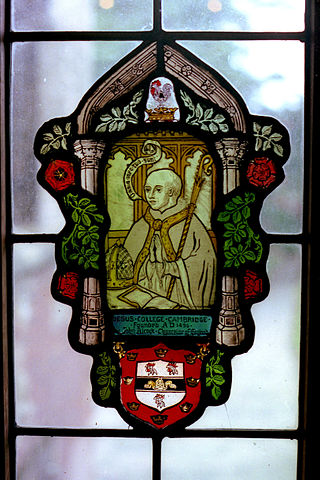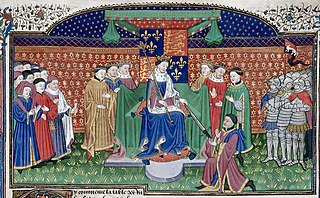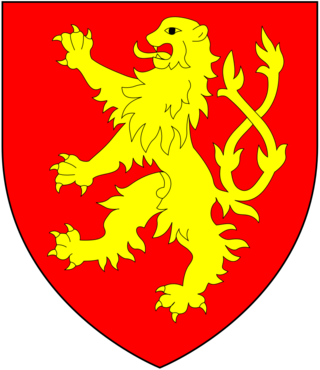
Thomas Bourchier was a medieval English cardinal, Archbishop of Canterbury, and Lord Chancellor of England.
Thomas Langton was chaplain to King Edward IV, before becoming successively Bishop of St David's, Bishop of Salisbury, Bishop of Winchester, and Archbishop-elect of Canterbury.

Thomas Rotherham, also known as Thomas (Scot) de Rotherham, was an English cleric and statesman. He served as bishop of several dioceses, most notably as Archbishop of York and, on two occasions as Lord Chancellor. He is considered a venerable figure in Rotherham, South Yorkshire, his town of birth.
Robert Stillington was an English cleric and administrator who was Bishop of Bath and Wells from 1465 and twice served as Lord Chancellor under King Edward IV. In 1483 he was instrumental in the accession of King Richard III, leading to later reprisals against him under King Henry VII.

John Alcock was an English churchman, bishop and Lord Chancellor.

John Stafford was a medieval English prelate and statesman who served as Lord Chancellor (1432–1450) and as Archbishop of Canterbury (1443–1452).
Thomas Charlton was Bishop of Hereford, Lord High Treasurer of England, Lord Privy Seal, and Lord Chancellor of Ireland. He is buried in Hereford Cathedral in Hereford, Herefordshire, England.
Marmaduke Lumley was an English priest, Bishop of Carlisle from 1429 to 1450, and Knight Commander of the Order of St. John of Jerusalem. He was a son of Ralph de Lumley, 1st Baron Lumley and Eleanor de Neville. He was elected about 5 December 1429, and consecrated on 16 April 1430. He was Bishop of Lincoln for a short time before his death in December 1450. He was educated at University of Cambridge and was appointed Precentor of Lincoln Cathedral in 1425. He also became Chancellor of the University of Cambridge in 1427 and was Master of Trinity Hall, Cambridge from 1429 to 1443. From 1446 to 1449 he served as Lord High Treasurer of England. Lumley's tenure as Lord High Treasurer occurred during the Great Bullion Famine and the Great Slump in England.

Henry Burghersh, was Bishop of Lincoln (1320-1340) and served as Lord Chancellor of England (1328–1330). He was a younger son of Robert de Burghersh, 1st Baron Burghersh, and a nephew of Bartholomew de Badlesmere, 1st Baron Badlesmere. He was educated in France.

George Neville was Archbishop of York from 1465 until 1476 and Chancellor of England from 1460 until 1467 and again from 1470 until 1471.
John Kirkby was an English ecclesiastic and statesman.

John de Ufford was chancellor and head of the royal administration to Edward III as well as being appointed to the Archbishopric of Canterbury.
John of Thoresby was an English clergyman and politician, who was Bishop of St David's, then Bishop of Worcester and finally Archbishop of York. He was Lord Chancellor of England under King Edward III starting from 1349.
William Dudley was Dean of Windsor and then Bishop of Durham.
Robert Baldock was the Lord Privy Seal and Lord Chancellor of England, during the reign of King Edward II of England.
Richard de Wentworth was a medieval Bishop of London.
William Ayermin was a medieval Bishop of Norwich.

Richard FitzJames was an English academic and administrator who became successively Bishop of Rochester, Bishop of Chichester, and Bishop of London.
John Sandale was a Gascon medieval Lord High Treasurer, Lord Chancellor and Bishop of Winchester.
Events from the 1480s in England. This decade marks the beginning of the Tudor period.







